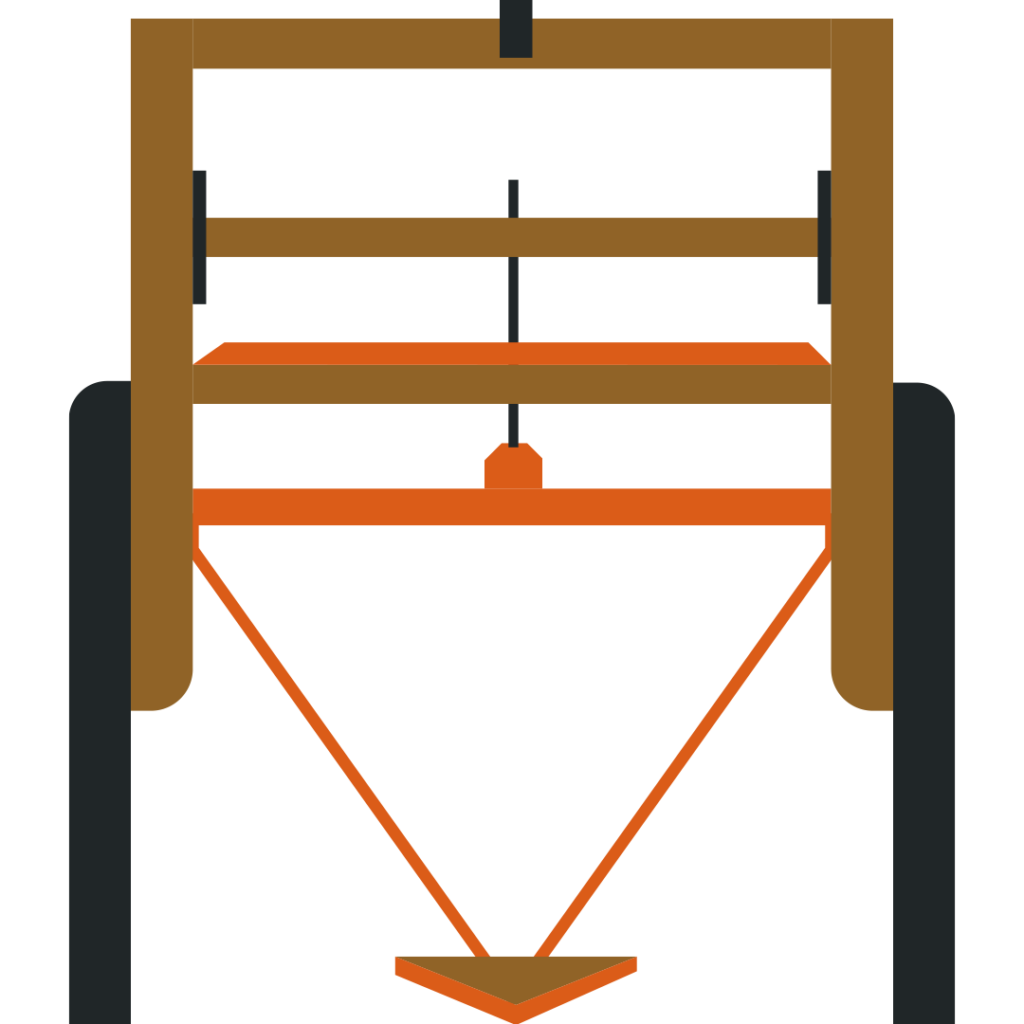When discussing marquetry, an ancient technique that transforms wood into art, we must mention one of the most iconic and essential tools: the Crossbow Saw. This tool, though simple in design, plays a crucial role in creating detailed and delicate pieces. Next, I will explain what a bow saw is, how it works, and why it is so valued by craftsmakers like myself.

History and Origin of the Croosbow Saw
The Croosbow Saw originated in Europe in the 16th century when marquetry became a popular way to decorate furniture and panels. This tool was crucial in developing and perfecting marquetry techniques, allowing for more precise and complex cuts that were not possible before.
Design and Operation of the Croosbow Saw
Basic Structure
The Croosbow Saw is primarily made of wood and has a large structure with a central board at chest height, allowing me to work standing up. This setup helps maintain stability and precision during cutting.
How It Works
The Bow Saw does not use a motor. It operates with a pedal that I control with my foot. When the pedal is activated, a wooden piece shaped like a bow, located at the top of the frame, moves the saw blade up and down. This Vertical Movement Allows for Precise Cuts with Great Control
Applications of the Croosbow Saw in Marquetry
The Bow Saw is fundamental in my workshop because it allows for cutting very small pieces and precise details that would be impossible with larger saws. This level of detail is essential for creating the complex patterns and detailed images that characterize marquetry.
Pattern Creation
I use the Bow Saw to follow precise patterns drawn on the wood. This process requires a steady hand and a lot of concentration, as each cut contributes to the final visual effect of the piece.
Inlay Work
In addition to cutting wood, this saw is useful for inlaying other materials such as bone, metal, and mother-of-pearl. These inlays can add color, texture, and an extra touch of luxury to my marquetry works.
Care and Maintenance of the Bow Saw
To ensure precise and safe cuts, it is important to keep the Bow Saw in good condition. This involves ensuring the tension is correct and replacing worn or damaged blades. Proper care guarantees that the tool will last for many years.
Conclusion
The Croosbow Saw is not just a tool; it is a link to the artistic tradition of marquetry. It allows craftsmen like me to continue practicing and preserving this ancient art. Its ability to make precise cuts and its adaptability to different materials make it the perfect tool.


